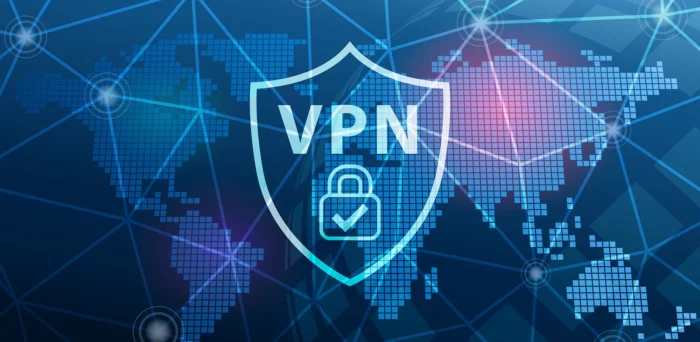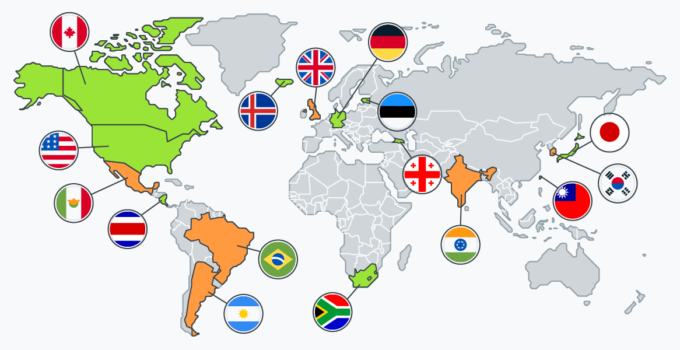Yes, you can make your own VPN server. A VPN (Virtual Private Network) is a great way to keep your data safe and secure when you’re using public Wi-Fi. It does this by encrypting all of the data that’s being sent from your computer to another computer or device, whether it be an app or website.
Normally, when you connect to the internet on a public network, all of your information is sent out in plain text. This means that anyone who wants to could see what websites you visit, what searches you make, and even the contents of those searches. This makes it easy for hackers and criminals to steal your identity or find out personal information about you by “sniffing” data packets as they go through their routers.
A VPN solves this problem by encrypting all of your data before it leaves your device and sending it across a virtual private network (VPN). This means that hackers won’t be able to see what pages are loading or what files are being downloaded—and neither will anyone else!
Basically, if you’re looking for VPN server solutions, VPN servers UK are the best in the business. They have security experts on staff who are constantly monitoring your server and making sure that everything runs as safely and smoothly as possible.
If you’ve got any kind of website or online business, you need to get in touch with these guys. There’s literally no other option when it comes to keeping your information secure and your customers happy.
Buy a server
So you’ve got a computer, and you have a connection to the internet. You can do whatever you want with that. But if you want to run your own server—a server that’s not run by anyone else, and which has all of its data housed on your own hardware—you’re going to need a Virtual Private Network (VPN).
A VPN is an online service that allows you to connect your computer directly to another computer or network. If you connect through a VPN, then when someone looks at what’s going on at your end of the connection, they’ll see an IP address belonging to the VPN server instead of yours. And if someone were trying to spy on that connection—say, because they wanted to find out what websites people were visiting—they wouldn’t see anything but encrypted traffic coming out of that IP address.
This means that using a VPN makes it much harder for people who are trying to spy on your internet activity or steal data from your computer than just using regular old internet access would be. So if you want total privacy from prying eyes and don’t trust any other provider with your data, then get yourself an account with one of these services!
Use other device

Source: pcmag.com
If you have a few spare devices lying around, don’t just throw them in a drawer! That’s a waste of potential. Instead, use them as your very own VPN server.
It’s really easy to set up, and we’re going to show you how. All you need is: A spare device that has an internet connection (like a laptop or tablet), the VPN app of your choice, and some time.
First, go to the Google Play store on your device and install the VPN app. Then go to settings on your phone and choose “VPN” from the options menu. You should see an option for “Add VPN Configuration.” Choose that option and enter all of the information it asks for (server address, username/password). If you don’t have any of those pieces yet, don’t worry—we’ll get into that below!
Once everything is set up on your phone, open up the VPN app so it can connect to your device over WiFi or cellular data. You should now be able to browse the web through that device without worrying about anyone snooping on what you’re doing online.
Cloud computing
You can set up your own VPN server with a cloud computing provider. A virtual private network (VPN) is a private network that uses the public internet to connect remote sites or users together. The VPN allows these remote sites or users to send and receive data as if they were connected to the same local area network (LAN) via an encrypted tunnel. The endpoints of the VPN are typically referred to as VPN clients. These clients must use special software called a VPN client in order to connect to the VPN server and use its resources.
When using a cloud computing provider, you can set up your own VPN server by using their virtual machines features. This way you have full control over what kind of server you want, how much memory it has, how many CPU cores it has, etc.
Conclusion

Source: cyberark.com
A virtual private network (VPN) is a way for people to connect securely to the internet by using a third-party server as an intermediary. This allows them to hide their IP address and encrypt their data, making it harder for hackers and governments to spy on them.
There are many different types of VPNs out there—but we’re going to focus on setting up a server for use with OpenVPN. This is because OpenVPN is open source software, meaning that it’s free and anyone can use it without paying any licensing fees. It’s also compatible with virtually every operating system in existence.
The virtual private network, or VPN, is a necessity for people who want to remain anonymous online. It’s also a great choice for those who want to keep their information and data secure. Knowing how to set up a VPN is the first step in choosing an option that’s right for you.




